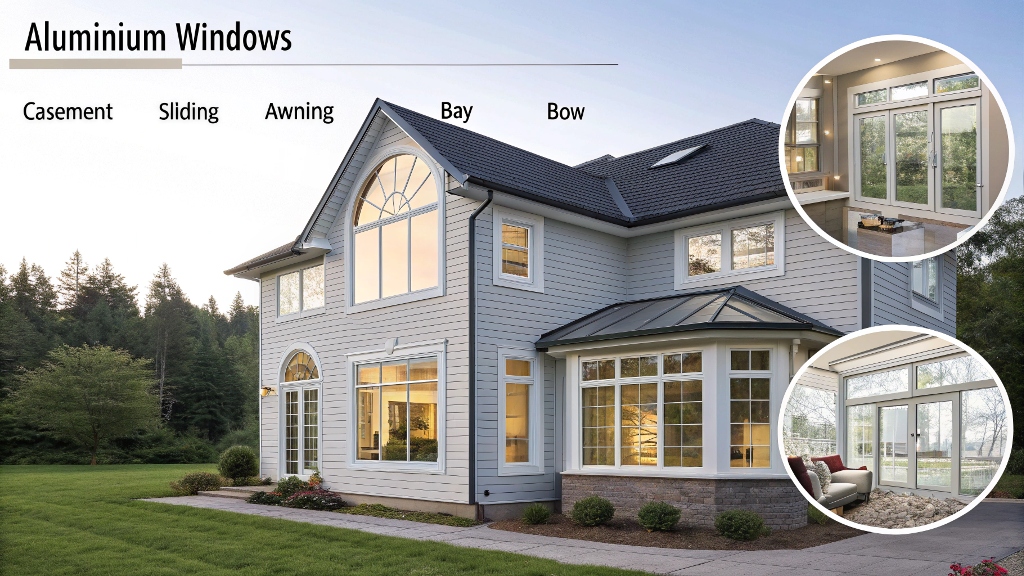
What Are the Different Types of Aluminium Windows?
Aluminium windows come in various styles including sliding, casement, tilt and turn, bi-fold, and fixed.
They can also be categorized by glazing—single or double pane—and specialty designs like bay and louvre windows.
Aluminium windows are a popular choice for their durability, modern aesthetics, and versatility. Whether you’re designing a commercial building or renovating your home,understanding the types of aluminium windows[^1] is crucial to choosing the best solution.
Aluminium windows can be classified by opening styles, glazing types, and specialty designs. Each category caters to specific needs in functionality, energy efficiency, and design.
This guide explains the various options available, their features, and their best applications to help you make an informed decision.
What Are the Different Types of Aluminium Windows by Opening Style?
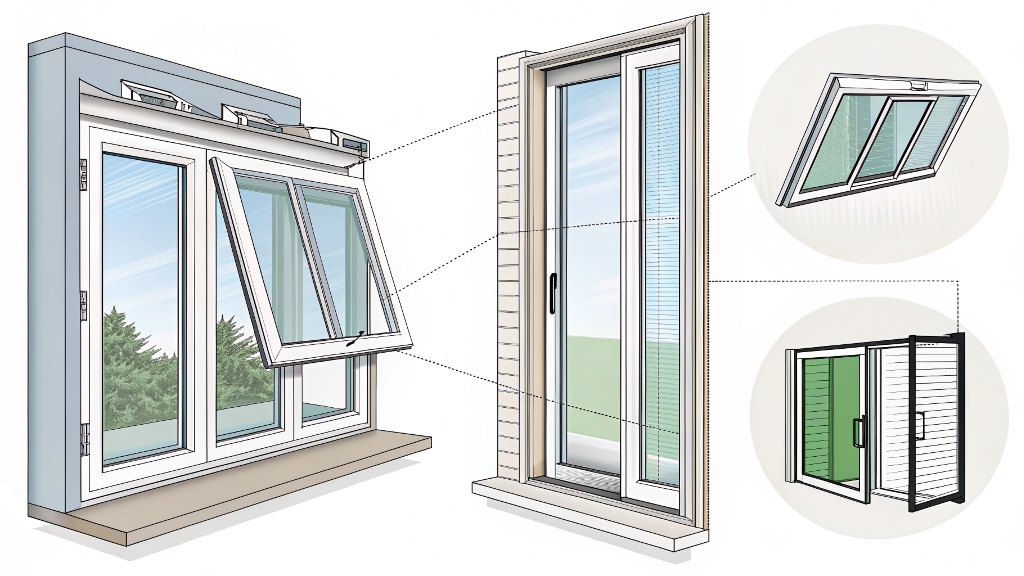
Common aluminium window opening styles include casement, sliding, tilt and turn, awning, side-hung, top-hung, and fixed windows.
Each style offers unique benefits for airflow, accessibility, and building aesthetics.
Aluminium windows come in various opening styles to meet different functional and aesthetic requirements. The choice of window type impacts ventilation, ease of use, security, and the overall design of a building.
1. What Are Tilt & Turn Windows?
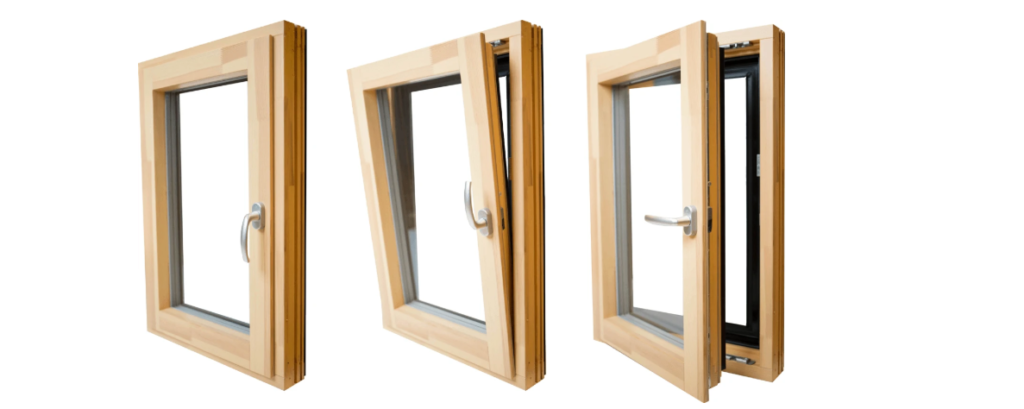
Tilt & turn windows[^2] are dual-function systems that tilt inward at the top for ventilation or swing inward like a casement for full opening.
This makes them ideal for both airflow and easy cleaning.
Best for: Bedrooms, offices, and high-rise apartments.
Advantages:
- Easy to clean from the inside.
- Highly secure when tilted, allowing ventilation without compromising safety.
- Space-saving due to inward opening.
Considerations:
- Mechanisms may require regular maintenance.
- Needs sufficient space for full inward opening.
What Are Sliding Windows?
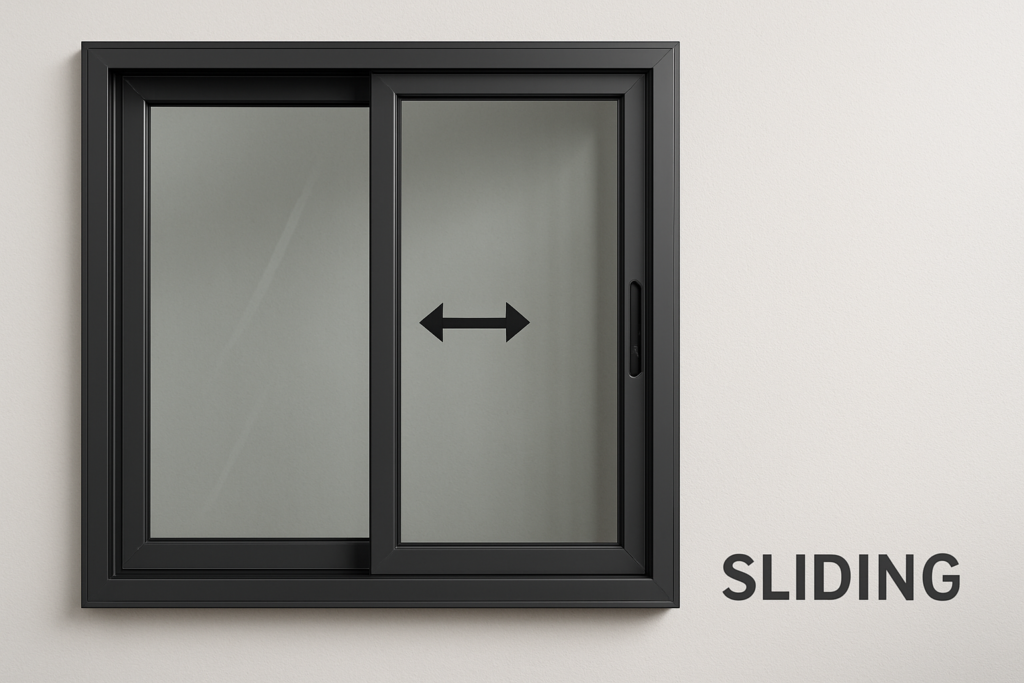
Sliding windows feature sashes that move horizontally along tracks.
They are ideal for maximizing space, providing wide, unobstructed views and easy operation in compact or modern homes.
Best for: Kitchens, living rooms, or compact spaces.
Advantages:
- Space-efficient, requiring no extra clearance.
- Ideal for wide openings with unobstructed views.
- Simple operation with minimal maintenance.
Considerations:
- Tracks can collect debris and need cleaning.
- Lower insulation performance compared to other types.
3. What Are Bi-fold Windows?
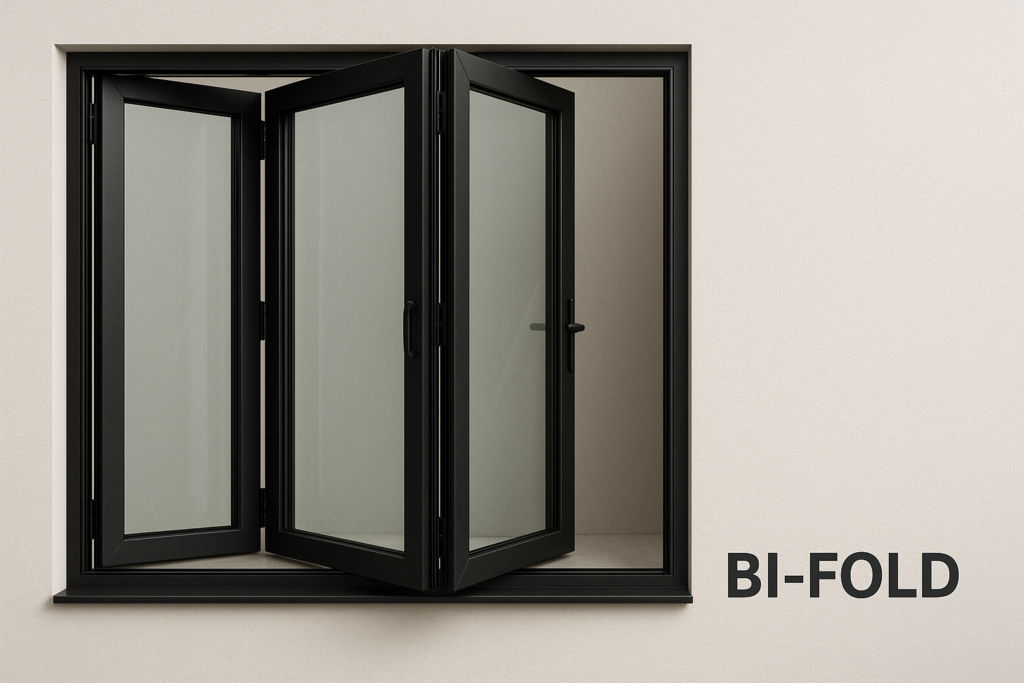
Bi-fold windows consist of multiple hinged panels that fold to one side, creating a wide, unobstructed opening between indoor and outdoor areas—ideal for maximizing light, airflow, and space connection.
Best for: Patios, entertainment areas, or modern open-plan designs.
Advantages:
- Large openings maximize natural light and ventilation.
- Modern aesthetics enhance property value.
Considerations:
- Requires sufficient wall space to accommodate folded panels.
- Higher installation costs due to complex mechanisms..
4. What Are Casement Windows?
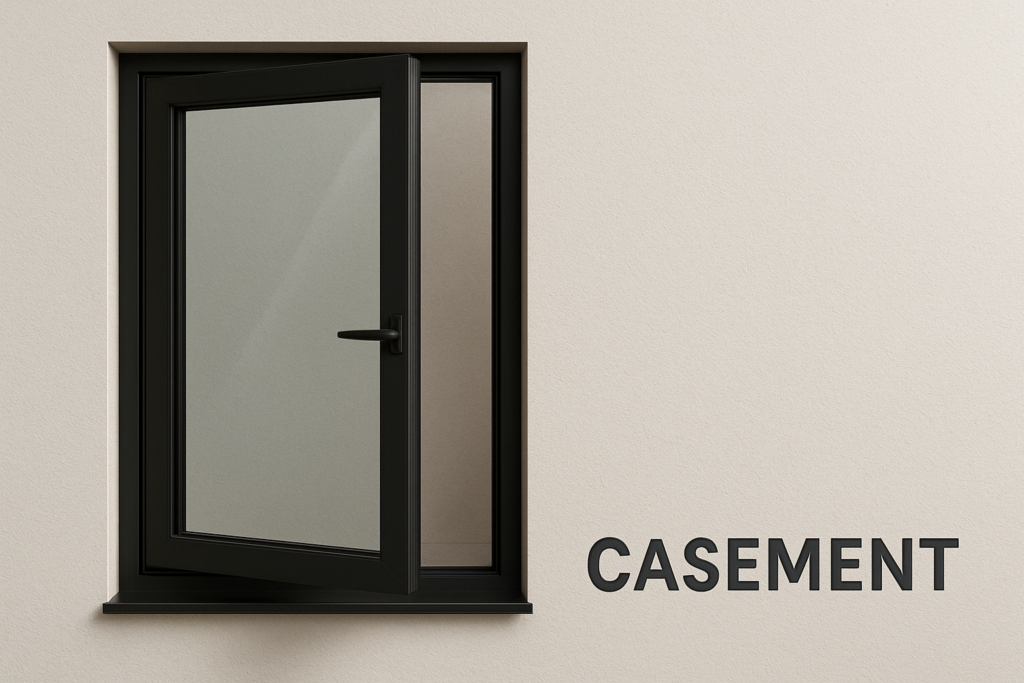
Casement windows are side-hinged units that swing outward like a door, offering full ventilation and a tight seal for energy efficiency—ideal for bathrooms, kitchens, and classic home designs.
Best for: Bathrooms, kitchens, or traditional homes.
Advantages:
- Provides full ventilation[^4]..
- Tight seal improves energy efficiency[^5].
Considerations:
- Needs external space for outward opening.
- Vulnerable to strong winds when open.
5. What Are Awning Windows?

- Answer: Awning windows are hinged at the top and open outward.
- Best for: Bathrooms or kitchens in rainy climates.
- Advantages:
- Can remain open during light rain.
- Compact design fits into smaller spaces.
- Considerations:
- Limited opening size reduces airflow.
- Requires external clearance for outward opening.
6. What Are Side Hung Windows?

- Answer: Side-hung windows are hinged on the side and open outward.
- Best for: Bedrooms and living rooms.
- Advantages:
- Classic, traditional design.
- Allows excellent natural airflow.
- Considerations:
- Needs space to open fully outward.
7. What Are Bottom Hung Windows (Opening Inwards)?

- Answer: Bottom-hung windows are hinged at the bottom and open inward.
- Best for: Upper floors or areas requiring controlled airflow[^6].
- Advantages:
- Allows safe, limited ventilation.
- Easy to clean the exterior.
- Considerations:
- Limited opening angle reduces ventilation.
8. What Are Top Hung Windows?

- Answer: Top-hung windows are hinged at the top and open outward.
- Best for: Bathrooms and high-rise buildings.
- Advantages:
- Provides privacy while allowing airflow.
- Low-maintenance design.
- Considerations:
- Limited ventilation compared to side-hung windows.
9. What Are Pivot Windows?

- Answer: Pivot windows rotate around a central hinge.
- Best for: Modern and contemporary homes.
- Advantages:
- Full 180° rotation for easy cleaning.
- Unique design adds a modern touch.
- Considerations:
- May not seal as tightly as other types.
10. What Are Stacking Windows?

- Answer: Stacking windows slide along tracks and stack to one side.
- Best for: Commercial spaces and open-plan homes.
- Advantages:
- Maximizes large openings.
- Creates a seamless indoor-outdoor flow.
- Considerations:
- Requires sufficient space for stacked panels.
11. What Are Fixed Windows?

- Answer: Fixed windows do not open and are used for aesthetic or lighting purposes.
- Best for: Stairwells or feature walls.
- Advantages:
- Excellent for framing views.
- Low maintenance.
- Considerations:
- No ventilation capability.
What Are the Types of Aluminium Windows by Glazing?
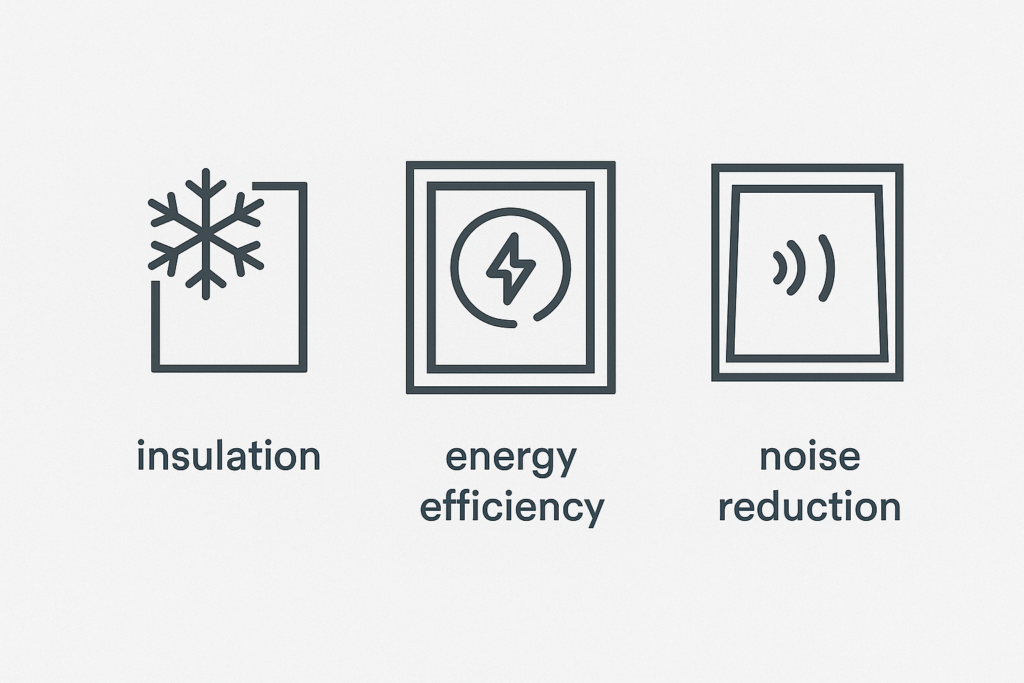
The glazing type affects insulation, energy efficiency, and noise reduction. Choosing the right glazing is critical for both residential and commercial projects.
Aluminium windows typically feature single glazing[^7] for affordability or double glazing[^8] for superior insulation and soundproofing.
1. What Is Single Glazing?
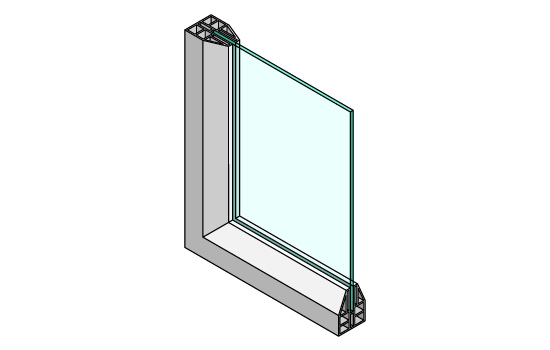
- Answer: Single glazing involves one pane of glass, offering basic insulation and soundproofing.
- Best for: Mild climates or interior partitions where thermal performance is not a priority.
- Advantages:
- Affordable and lightweight.
- Simple installation.
- Considerations:
- Poor energy efficiency compared to double glazing.
- Less effective at blocking noise.
2. What Is Double Glazing?
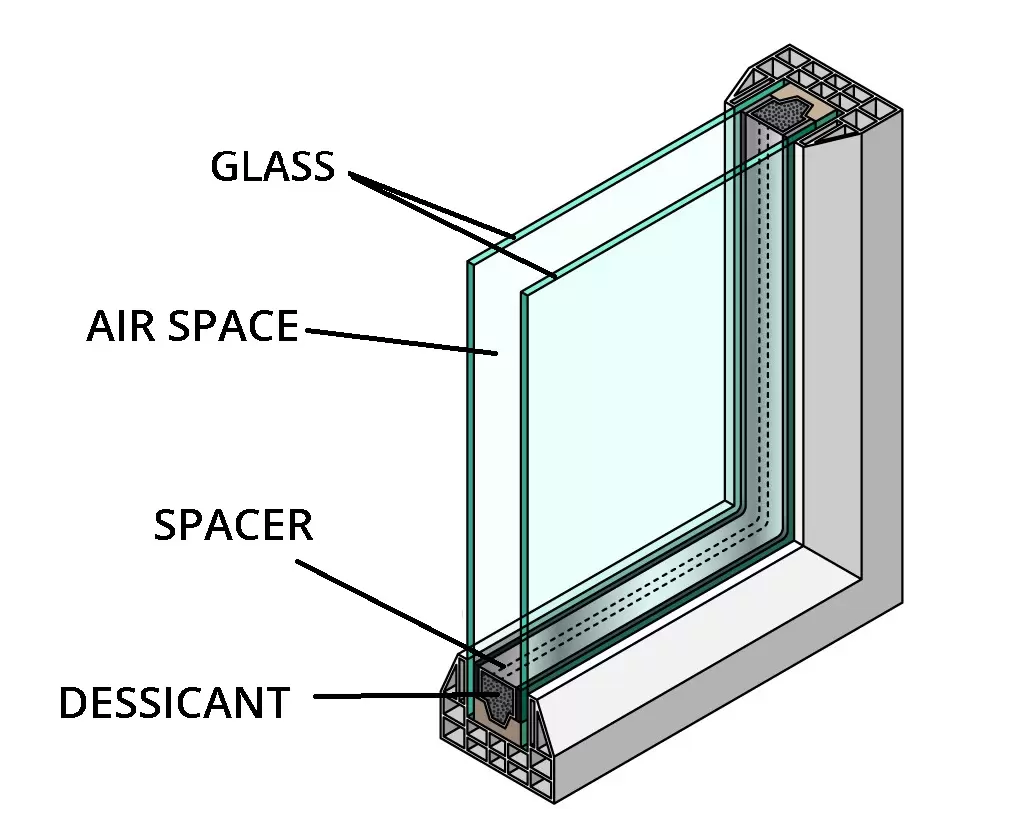
- Answer: Double glazing consists of two panes of glass separated by an insulating air or gas-filled layer.
- Best for: Energy-efficient homes or buildings in noisy urban areas.
- Advantages:
- Reduces heat loss and lowers energy bills.
- Significantly better soundproofing compared to single glazing.
- Minimizes condensation on the interior surface.
- Considerations:
- Higher upfront cost.
- Heavier, requiring stronger frames.
| Glazing Type | Key Features | Best Use Case |
|---|---|---|
| Single Glazing | Basic insulation, affordable | Mild climates, interior use |
| Double Glazing | Superior insulation, soundproofing | Energy-efficient homes, urban settings |
What Are Specialty Aluminium Windows?
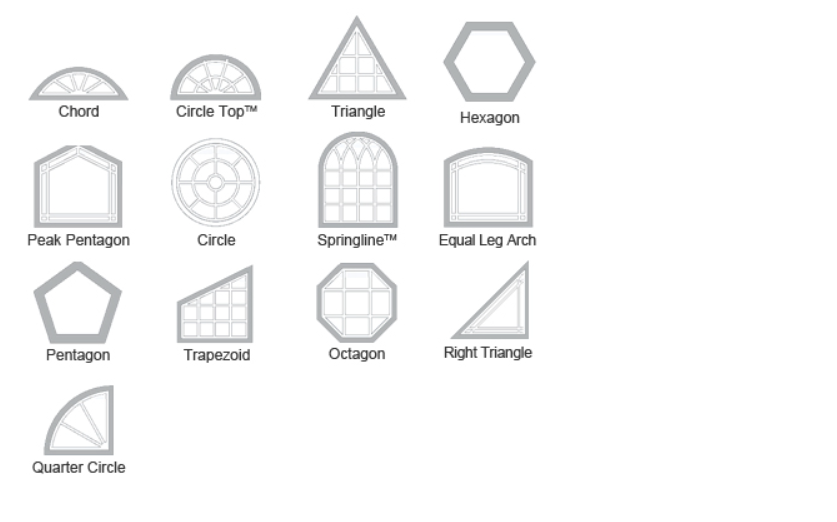
Specialty windows are designed for unique applications or architectural styles. They add character to buildings while offering additional functionality.
Popular specialty aluminium windows include bay windows[^9] for added space and louvre windows[^10] for enhanced ventilation.
1. What Are Bay Windows?

- Answer: Bay windows extend outward, creating a cozy interior nook and offering panoramic views.
- Best for: Living rooms or bedrooms needing extra space and light.
- Advantages:
- Adds depth to the room and increases floor space.
- Provides multiple angles for natural light.
- Considerations:
- Higher cost due to complex framing and installation.
2. What Are Louvre Windows?
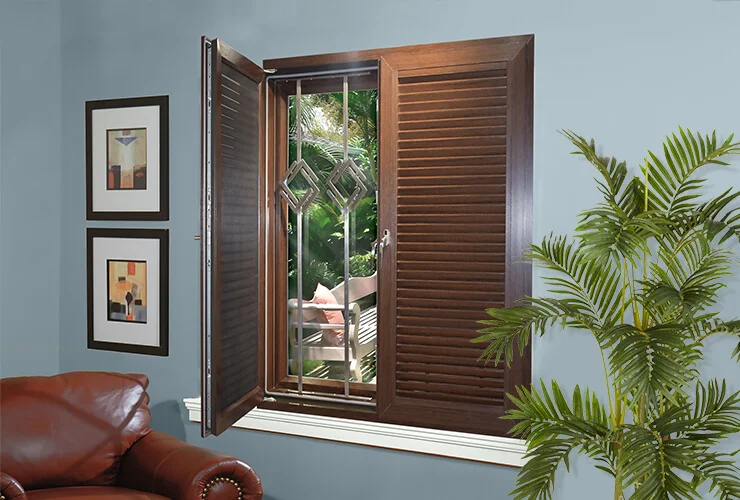
- Answer: Louvre windows consist of horizontal slats that can be angled to control ventilation and privacy.
- Best for: Warm climates, bathrooms, or utility spaces.
- Advantages:
- Excellent airflow while maintaining privacy.
- Adjustable slats for customized ventilation.
- Considerations:
- May require regular cleaning to keep slats free of debris.
| Specialty Type | Key Features | Best Use Case |
|---|---|---|
| Bay Windows | Depth, panoramic views | Living rooms, bedrooms |
| Louvre Windows | Privacy and ventilation | Bathrooms, utility areas |
Conclusion
What are the different types of aluminium windows by opening style? The choice of window type can drastically affect the functionality, aesthetics, and energy efficiency of your space. From the versatile tilt-and-turn windows to the elegant fixed windows, there’s an ideal solution for every need.
[^1]: Exploring this link will provide a comprehensive overview of aluminium window types, helping you understand their unique benefits and applications for your project.
[^2]: This resource will delve into the dual functionality of tilt & turn windows, offering insights into their security features and ventilation benefits.
[^3]: Discover the space-saving benefits and potential drawbacks of sliding windows, aiding in making an informed decision for your living space.
[^4]: Exploring the benefits of full ventilation can help you understand how it improves air quality and comfort in your home.
[^5]: Understanding how casement windows enhance energy efficiency can lead to significant savings on your energy bills.
[^6]: Learning about controlled airflow can help you make informed decisions for better ventilation and safety in your home.
[^7]: Understanding when single glazing is most effective can guide you in making cost-effective decisions for mild climates or interior partitions where thermal performance is not a priority.
[^8]: Exploring the benefits of double glazing can help you understand how it significantly reduces heat loss and lowers energy bills, making it a smart choice for energy-efficient homes.
[^9]: Discover how bay windows can transform your living space by adding depth, increasing floor space, and enhancing natural light.
[^10]: Learn about the unique advantages of louvre windows, including their ability to provide excellent airflow and privacy, making them ideal for warm climates and specific rooms.
